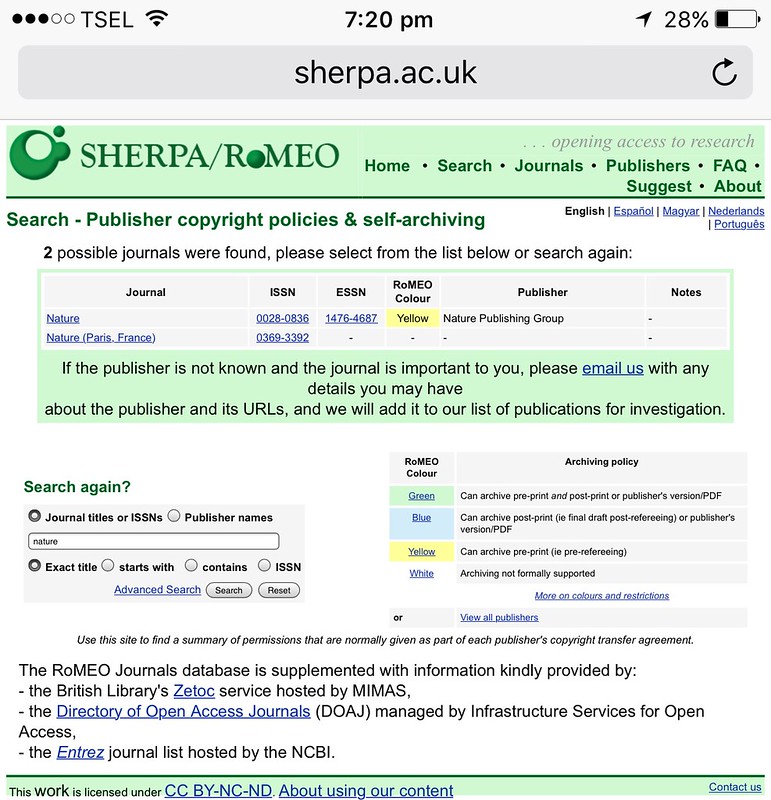On 20th November 2019, the graduate trainees attended a session on E Developments at the University of Oxford’s Libraries. The first talk was given by Sally Rumsey, Head of Scholarly Communication and Data Management. She covered open access regarding academic research.
The Oxford Research Archive (ORA) was established in 2007 and aimed to provide open access research to researchers. Its establishment was viewed as important after the research charity Wellcome Trust released a position statement in 2005 in support of open and unrestricted access to published research. They would fund research, but it had to be made freely available.
Before 2012, it was only Sally and one assistant who were the main team behind ORA. The digital repository was established in 2007 and had been plodding along with a mere 100 research articles to process each year. Then 2012 hit and in Sally’s words ‘all hell broke loose’. Suddenly, the team were receiving over 1200 articles to process into ORA, as well as their first budget of £800,000!
So what happened to cause such a barrage of information? The 2012 Finch report was published by the UK government which recommended that all funded research had to be made freely available. The rise of the Internet since the early 1990s appears to have been underpinned by a desire to provide easily accessible information and research. At the time, Tim Berners Lee was honoured at the Olympic Games in London as the inventor of the World Wide Web, where as part of the ceremony he tweeted ‘This is for everyone’.
Was online academic research for everyone? If you tried to access articles on publisher’s sites, they would generally attempt to seduce you into signing up for a subscription fee (and this still happens!). The average cost for a subscription is certainly not cheap as chips. Needless to say, this did not provide an incentive for the public to want to gain reliable and good quality information. The Finch report highlighted this issue and recommended that everyone should be entitled to gain access to information. It was clearly time to tear those paywalls down.
In 2014, the big cheese, the Research Excellence Framework announced a policy which required researchers to deposit publications into their institutional repository within three months of acceptance. This led to ORA beginning to request academics to Act on Acceptance in 2016. This means that when an academic has a paper accepted for publication, they must deposit the final peer-reviewed version into ORA within three months of acceptance.
As you may imagine, publishers have had to slowly come around to the idea of open access. The author pays model as highlighted in the Finch Report is becoming increasingly popular. The author or institute pays a fee to the publisher in order for their research to be published. This enables the research to be freely accessed. According to Sally, you can have a fully open access journal where all contributors are paying to publish. But then, there are hybrid journals which have an author pays model but also a subscription fee for readers. This has been labelled by critics as ‘double dipping’ as the publisher benefits twice.
And it’s not just money that’s another issue with publishers and open access. Academics may end up forfeiting their rights to their own work if they are not too careful. Sally said that publishers started to put restrictions on what could and could not be used when researchers wished to use their work elsewhere. SHERPA/RoMEO is a handy online database which has records researchers can assess, so they can find out what exactly they are permitted to do with work published in various journals. Although SHERPA/RoMEO is undoubtedly a useful source, the publisher’s policies can be so confusing that Sally’s team often have to decipher the terms in order to work out what the researcher can actually do.
Wherefore art thou…a right to own my work?!
This can mean that if a researcher innocently posts their work on sites like Academia.edu and ResearchGate, a publisher may take action since they are seen as going against the copyright agreement. The savvy academic will get around this by choosing to remove the terms they don’t like from the agreement with a black marker before signing it. We may assume that this would incite the publisher to come after the badly behaved academic with an iron fist, yet Sally says that often publishers will merely shrug. The Creative Commons, a non-profit organisation, also allows academics to retain control of their research since it enables users to choose a free copyright licence in order to share their work. ORCID is also another way of being able to share research without infringing copyright law. Researchers can apply for a unique identifier which they can use to get credit for their own work.
So what is the future for open access when it concerns academic research? Research Data Oxford (RDO) is a data management plan which provides guidance for each stage of the research process. RDO is a multi-disciplinary effort, involving various teams across the university including Sally’s, but also legal and ethical teams. In this way, researchers can be guided through the minefield that is online publishing.
The Reproducible Research Oxford (RRO) initiative will also come into play in January 2020. This is managed by a group of academics who believe in ensuring that research is bullet proof and good quality- which means that the methods academics use in their research should be made freely available too! Through this, RRO aims to lay the groundwork of a culture of research reproducibility at the University.
Finally, there is the Plan S initiative. Plan S requires that by 2021, scientific publications which result from research funded by public grants must be published in compliant Open Access journals or platforms. This may sound like a policy but it isn’t. Plan S is guidelines funders may choose to use, but don’t be fooled that it’s entirely optional. Supporting funders include The Wellcome Trust, the Bill and Melinda Gates Foundation, the World Health Organisation and the European Union.
Hopefully, with more policies and initiatives like the ones discussed in this post, the world of academia will be able to continue to adapt to the idea of open access and digitized research. Many thanks to Sally Rumsey who gave the original, interesting talk on which this post is based on. Next week will feature the second talk given by Matthew Popham. It will be all about Digital Developments at the Bodleian Libraries, so stay tuned! Also coming up very soon is a post about the Copyright Training staff can receive.
Useful Links:
For a general history of open access in academic research https://osc.cam.ac.uk/open-access/brief-history-oa
To read the Finch report https://www.acu.ac.uk/research-information-network/finch-report-final
For more on the double-dipping phenomenon https://www.enago.com/academy/hybrid-journals-are-publishers-double-dipping/
To check out SHERPA/RoMEO http://sherpa.ac.uk/romeo/index.php
Follow the link if you are interested in obtaining an ORCID http://ox.libguide.com/orcid
To find out more about Research Data Oxford http://researchdata.ox.ac.uk/
For more information on Reproducible Research Oxford https://rroxford.github.io/
To find out more about Plan S https://www.coalition-s.org/
Picture Credits:
‘This is for Everyone’- Tama Leaver https://www.flickr.com/photos/tamaleaver/7674657708/in/photolist-cGbCmC-cF54aq/ image was cropped and resized
‘SHERPA/RoMEO’- Dasapta Erwin Irawan https://www.flickr.com/photos/d_erwin_irawan/36487105886/in/photolist-XAeXow image was unaltered


